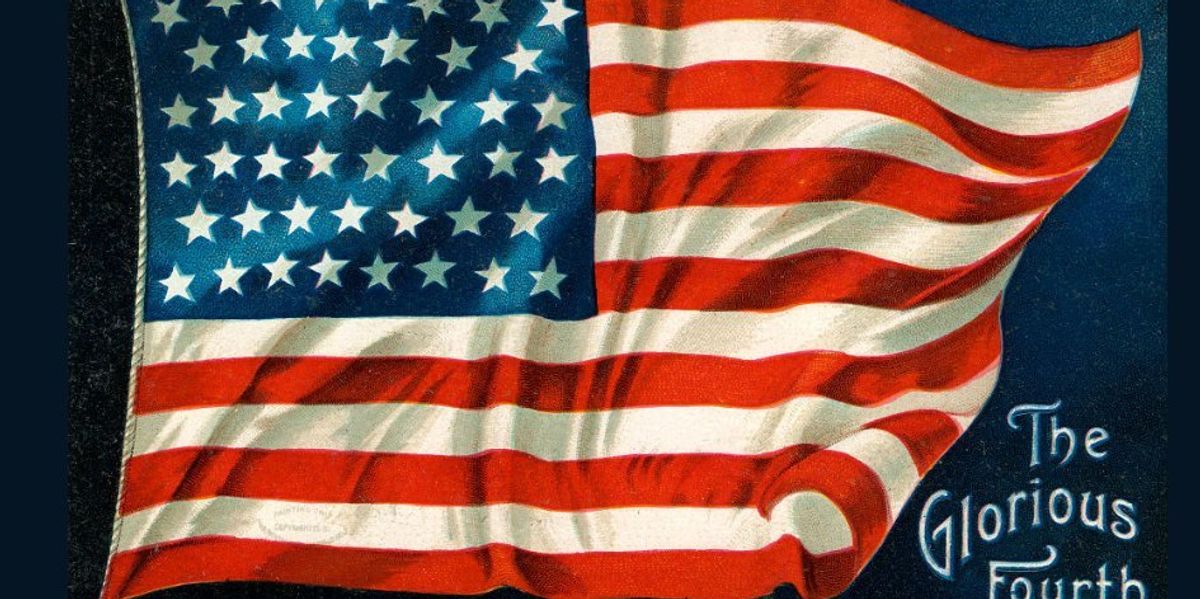

1. We're incurable optimists
 H. Armstrong Roberts/Classic Stock
H. Armstrong Roberts/Classic Stock
If you're on music duty for the barbecue this weekend, don't overlook "Little Pink Houses."
The John Cougar Mellencamp classic is a dependable crowd-pleaser because it's one of those songs people tend to forget they love. At least until it gets to the first "Ain't that America?" — at which point everybody's singing along. An essential addition to any patriotic playlist.
Now, some party poopers love to point out that "Little Pink Houses" isn't really a celebration of America. (They do this with "Born in the U.S.A." too.) Even Mellencamp himself.
“This one has been misconstrued over the years because of the chorus — it sounds very rah-rah. But it’s really an anti-American song."
Tell you what, Mr. Mellencamp: We'll be the judge of that. And as soon as we hear that opening riff, our hearts swell with patriotic pride.
It's not that we haven't heard the lyrics. It's that we don't feel sorry for the everyday Americans they describe — as we're apparently supposed to.
Take the black guy in the first verse, with the interstate running through the front yard of his little pink house.
That guy inspired the song. He's based on a real person Mellencamp saw in Indianapolis, sitting in a cheap lawn chair with a cat and watching the endless traffic go past his front yard.
The most striking thing to Mellencamp was how content the guy seemed. But instead of contemplating this mysterious serenity, he dismisses it as delusional.
"You know he thinks he got it so good."
Who are we to say he doesn't? Have you ever seen a better distillation of patronizing, paternal liberalism?
From that simple image, by the way, the up-and-coming singer-songwriter built a top-10 hit and classic rock staple beloved by millions for more than four decades. How's that for the American dream? The dream "Little Pink Houses" is supposed to "critique."
Or consider the young man with the greasy hair and greasy smile "listening to the rock and roll station."
When we hear that verse, we get an intense nostalgic feeling of doing nothing on a lazy summer afternoon before smartphones were invented.
Paradise. He's young and it's morning in America. And we're supposed to think he's sad that he's not going to be president?
Forget the self-defeating, sad-sack interpretations. "Little Pink Houses" is about the kind of determined optimism only Americans understand. "There's winners, and there's losers," the song notes. Can you think of a better place to be either?
It's the pedantic killjoys who miss the point. Yes, we're taking a tale of ordinary hardship and cheerfully focusing on the good parts until the hardship itself almost seems fun. It's the American way.
From the moment "Little Pink Houses" hit the airwaves in October 1983, all the Debbie Downers and Gloomy Guses trying to bum us out didn't stand a chance.
Or as one scold puts it, "Most people simply heard 'America,' tuned out the sarcasm, and unfurled the flag."
Exactly. Sounds like the perfect Fourth of July to us.
—Matt Himes, managing editor, Align
2. We love pulling off the impossible

In "Democracy in America," Alexis de Tocqueville said, “Democracy is slow and sluggish and inefficient, but once the will of the people is set in motion, nothing can stop it.”
At least, that’s what I remember him saying, but my computer says no. Maybe he said it to me in confidence and I thought I read it in a book.
At any rate, it’s true. Americans are capable of letting the pendulum swing very far into chaos (not as far as South Africa, but almost) before correcting. Chicago went from the frying pan of Lori Lightfoot into the fire of Brandon Johnson. New York City has been choosing progressively worse progressives since Giuliani and currently has its sites set on a spoiled rich kid who thinks he hates money and loves Palestine.
However, after Biden, we got Trump. After letting in more immigrants in four years than Ellis Island did from 1892 to 1954, we got deportations. After praising Antifa and BLM for burning our country to the ground and then condemning innocent J6ers to decades in prison, we we got pardons for the innocent and punishment for the pyromaniacs.
It might feel sometimes that we are losing our country and the pendulum is locked into “slow and sluggish” mode, but Trump should give us hope. If the presidency can be saved, so can the whole country.
Andrew Breitbart always said, “Politics is downstream from culture,” but MAGA is both. Last week a replica of the "Dukes of Hazzard" car was jumped over the downtown fountain in Somerset, Kentucky, as 35,000 people screamed their heads off. It wasn’t just a random stunt. It was a sign. America is becoming great again. We just have to stay the course and have faith.
—Gavin McInnes, host of "Get Off My Lawn"
3. You can't shut us up
 CORBIS via Getty Images
CORBIS via Getty Images
Once upon a time Hollywood loved free speech, the all-American value we need now more than ever.
The 1995 political romance "The American President" ended with a stem-winder by President Shepherd, played by Michael Douglas.
America isn’t easy. America is advanced citizenship. You’ve gotta want it bad, ’cause it’s gonna put up a fight. It’s gonna say, “You want free speech? Let’s see you acknowledge a man whose words make your blood boil, who’s standing center stage and advocating at the top of his lungs that which you would spend a lifetime opposing at the top of yours.That was then. Hollywood wouldn't allow that opinion in a feature film today. The industry recoils over "hate speech," refuses to defend conservatives banned from social media, and twiddles its thumbs while "sensitivity readers" swarm the publishing ranks.
Oh, and the best and brightest cheered when social media platforms booted President Donald Trump off of their digital turf.
I want that 1995-era Hollywood back. And if today's version can't rise to the occasion, a new Hollywood will emerge. It won't be based in California, mind you, but as technology gives artists the tools to tell their stories their way, new tales will be told across the fruited plain.
Why? Because that's how America works. Still.
—Christian Toto, film critic
RELATED: America’s Southwest was conquered fair and square
 Photo by Nawrocki/ClassicStock/Getty Images
Photo by Nawrocki/ClassicStock/Getty Images
4. We have the need for speed
 Bernard Cahier/Getty Images
Bernard Cahier/Getty Images
America, to me, is the land of boundless opportunity, where hard work, creativity, and ingenuity drive progress, from the open road to the factory floor.
Our nation is built on the freedom to chase dreams, like restoring classic cars; driving the type of vehicle you want, where you want and when you want; or pioneering new technologies, all while honoring the values that keep us strong.
For our family, our life is all about cars, auto racing, and restoration. One American who has especially inspired us is the famous car racer, designer, and marketer Carroll Shelby.
In the early 1960s, GT automobile racing was dominated by European brands like Jaguar, Ferrari, and Aston Martin. Shelby, a young Texan who had won Le Mans in an Aston Martin, thought he could make something faster. And he did — putting a Ford V8 engine in a sleek, lightweight body.
For us, Shelby represents American ingenuity, hard work, and never-say-die spirit. He reminds us of the simple, uniquely American freedom of getting behind the wheel of your own car and hitting the open road.
It's impossible to drive or ride in a Shelby Mustang or Cobra without a big smile on your face; it's one of those special experiences you don't forget. We certainly won't — we named our daughter Shelby.
—Lauren Fix, Align Cars
5. We love a long shot
 Joshua Lisec
Joshua Lisec
Scott Adams was working at Pacific Bell and wanted a career change. So he woke up early every day before work to figure out his next step.
Even though he had little artistic experience and no special talent, the career that stuck was newspaper cartoonist. "Dilbert" was born. After almost a decade of grinding it out, he made it the most successful comic strip in the country.
With his MBA and corporate resume, Adams had no business trying to break in to the hyper-competitive world of syndicated newspaper strips. It shouldn't have worked — but it did. As he writes in his book "Reframe Your Brain,"
Once you realize you're terrible at estimating the odds of your own success, you're free to try things you might otherwise not consider. You are allowed to expand beyond your comfort zone without pressure because the only way to know what will work is to test it yourself.In 2015, Adams noticed another corporate guy attempting an improbable career change. He was the first to predict that Donald Trump would win the presidency. People laughed, but of course Adams was right.
Since then, Adams has gone on to launch a beloved YouTube show, publish a few books, and build a reputation as one of the wisest political commentators and dispensers of career and life advice around.
When Adams announced that he had terminal prostate cancer in May, the outpouring of tributes on X and elsewhere was a powerful indication of how many lives he changed.
Since then, he's continued to show up for the community he's built, while acknowledging that he's on borrowed time. His fans plan on sticking with him to the end.
In the words of Adams' frequent collaborator, ghostwriter, editor, and publisher Joshua Lisec:
Scott is the original internet dad. It's obvious to all that basically everyone under 45 or so has the father wound — either from overbearing dads who weren't helpful in giving quality life advice or dads who were totally checked out while a second-wave feminist mom ran the show. So what's it like to have a father who wants the absolute best for you and provides you firm yet kind counsel in every area of your life, from career, health, and relationships to how to think productively about politics, religion, and happiness? That's Scott Adams.—Matt Himes
6. We're different but the same
 Raymond Boyd/Getty Images
Raymond Boyd/Getty Images
Order a "hot dog" in New York City and you'll get an all-beef frankfurter in a natural casing with mustard and maybe some sauerkraut and onions. In Chicago they'll load you up with everything: yellow mustard, dark green relish, chopped raw onion, peppers, pickles, and tomato — crammed into a poppy-seed bun with celery salt on top.
In D.C. the style is half beef, half pork with chili and onions. In Philadelphia they'll make it surf and turf by adding a fish cake.
In Cleveland they have the Polish Boy, which is a kielbasa with french fries, slaw, and barbecue sauce. Go to a Colorado Rockies game and you'll get a foot-long with grilled peppers. Up in Maine they like their dogs bright red.
At Fenway Park they boil and grill them and offer to put baked beans on top. Cincinnati is known for chili and cheese. And in the Southwest, they'll add salsa, bacon, and pinto beans.
Come to think of it, this is a great metaphor for the big immigration brouhaha these days. Opening the borders to millions of foreigners who have no interest in America except as a nice place to set up their own ethnic enclaves and send money home is like replacing all the hot-dog stands in Albany with samosa carts or kebab trucks.
You want both. And when it comes to hot dogs, you want something recognizably American (a hot dog) but with its own regional spin. Making it their own while still respecting the core elements (frankfurter, bun, toppings) that make it work. That's the kind of "diversity" this country is built on.
—Matt Himes
7. Show us a frontier and we'll build on it
Just returned from weekend at Wagon Box. It was great.
Beautiful, intellectual, long conversations, incredible local beef, flow of locals and weirdos interfacing with Substack religo-dorks and scenester art women. A little janky, not everything works right, everything a bit slanted, erratic, and natural. Some things you pay for, some you don't.
Nobody quite knows the rules. An overtly hostile shouting bartender whom everyone learns to love. Two types of delicious local ale and only three items on the lunch menu. Zero gloss of private equity. A positive and non-hateful crossroads of genuinely strange IRL human connection, contemplation, and discussion.
And most importantly, no policing of thought or language.
When Paul McNiel bought it a few years ago, it was a former biker bar in the woods where hardcore one-percenters would stop on their way around upper Wyoming and Montana. They used to sit on that porch and howl and make trouble all night long, until cultural feminization quelled their activity to a trickle.
And now instead of bikers, it's a bunch of thinkers and talkers who sit on that porch thinking and talking late into the night, with a lot less meth and a lot less fighting and a lot more plotting and planning to benefit the globe and humankind. It's a free zone one way or another.
—Isaac Simpson, founder and director, WILL
8. We elected Donald Trump. Twice.
 SAUL LOEB/AFP via Getty Images
SAUL LOEB/AFP via Getty Images
No modern American president has ever been this fully president before. He is pulling every lever and pressing every button, even ones that haven't been pressed in decades, if ever. He is dusting off the forgotten control panels and firing up the long-abandoned machines.
It may not be exactly to your liking, but this is the best we are ever going to get in our lifetimes, so enjoy it while it lasts.
—Peachy Keenan, author of "Domestic Extremist"
9. Because it's worth fighting for
 Portland Press Herald/Getty Images
Portland Press Herald/Getty Images
It's wild that simply loving America has become a revolutionary act. But since it's the closest I'll get to the founding fathers, I'll take it.
—Lou Perez, writer and comedian
.png)
 5 hours ago
4
5 hours ago
4





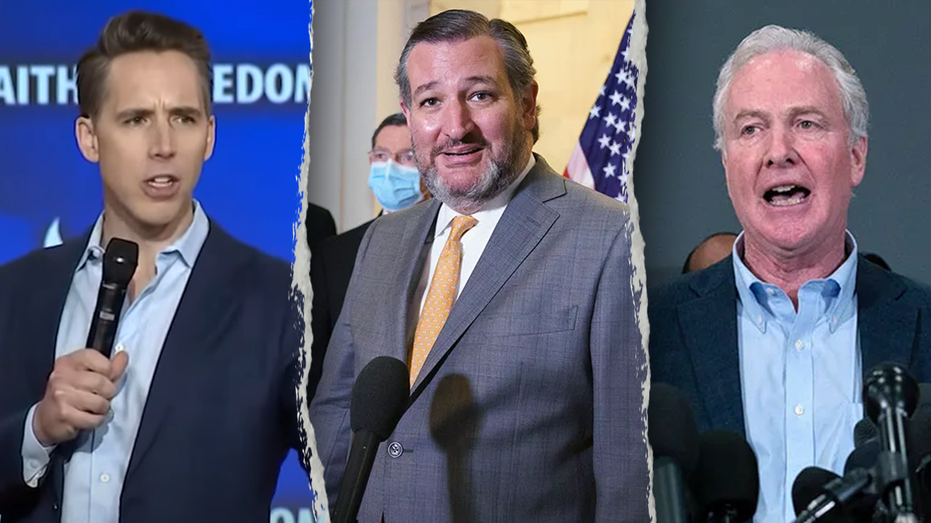


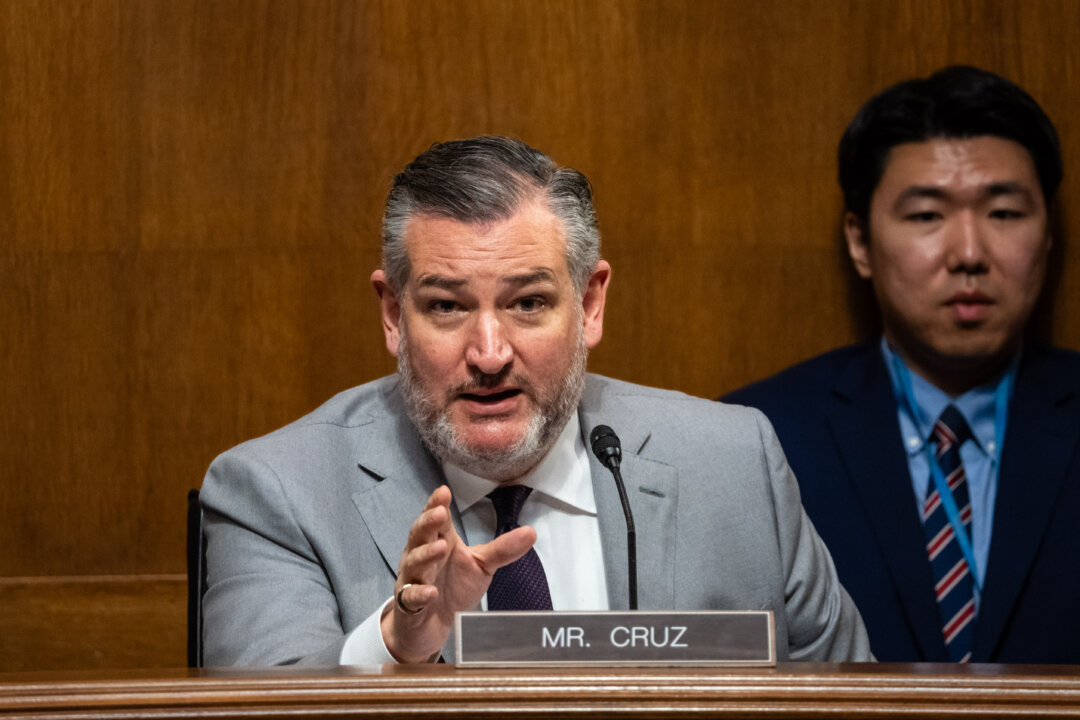
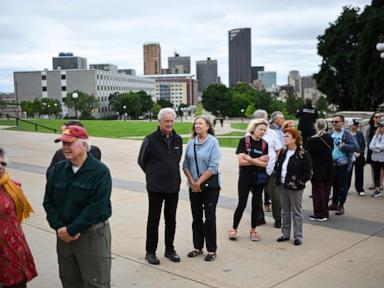
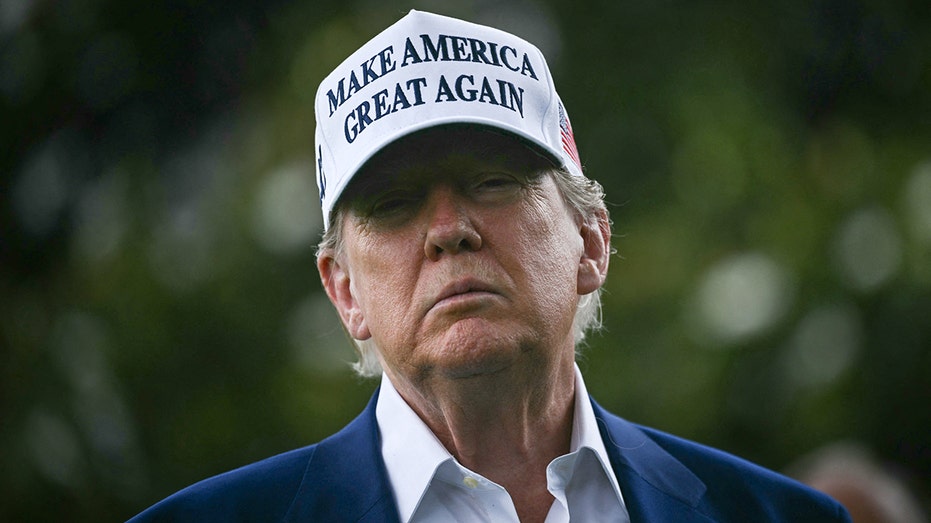



 English (US)
English (US)